Gastritis- inflammation of the mucous epithelium of the stomach. This disease does not disappear from the life of contemporaries, despite the increase in living standards.
Stress, the desire to do more in a limited period of time, leads to the fact that we eat anything and everything on the go. The consequence of this is various forms gastritis of the stomach.
Gastritis- such a disease of inflammation of the stomach, fluttering against the background of:
- constant errors in nutrition,
- abuse of seasonings, strong natural or instant coffee,
- addiction to alcohol and/or nicotine,
- poisoning the body with medicines or certain harmful substances,
- illness or numerous stressful situations.
Gastritis of the stomach leads to a decrease in the quality of food processing by gastric juice, due to which the entire work of the gastrointestinal tract is destabilized, and the body begins to lack substances even with a varied diet.
Without proper treatment, gastritis provokes development of ulcers, cholecystitis, pancreatitis, anemia, nervous disorders.
Facing symptoms of gastritis more than 80% of people However, only a seventh of the sick turn to gastroenterologists - in cases where the disease is in an acute form.
Types of gastritis of the stomach
There are two special forms (stages) of gastritis: sharp And chronic.
special shapes
- - a sudden inflammation of the upper layer of the inner epithelium of the stomach, manifested by pronounced pain symptoms. It develops as a result of severe stress, repeated exposure to ice / burning food, ingestion of chemicals, alcohol abuse, infection, frequent nutritional errors.
- - repeatedly occurring inflammation of the gastric mucosa, leading to unstable work of the organ, frequent violations of the secretory and motor functions. Triggered by repeated exposure to unhealthy food/alcohol/nicotine or due to lack of appropriate treatment acute gastritis.
Classification
There are many types of gastritis. A brief description of each type can be found below:
- - increased concentration gastric juice, forming a persistent, sometimes causeless heartburn. Atypical saturation of the enzyme fluid stimulates the formation of multiple ulcers on the mucosa.
- - insufficient concentration of acid in the gastric secretion, which creates conditions for poor fermentation of incoming food. As a result, the walls of the stomach can be damaged by coarse pieces of food, and the body does not receive the proper amount of substances.
- - develops against the background of infection with Helicobacter pylori culture, leading to focal modifications of the internal epithelium. The result of the vital activity of bacteria is the scarring of the mucosa and the insufficiency of the formation of gastric secretions.
- - gradually leads to thinning of the epithelium of the stomach, the degeneration of the glands into more simple shapes and lower the quality of their work. Without corrective therapy, it can cause cancer.
Most gastritis is the result of:
- exposure to bad habits
- nutritional errors
- use a large number synthetic food
- violations of the culture of dining
Some gastritis develops due to exposure to poisonous substances or as a result of a general disease.
Exacerbation of chronic gastritis with relapses in the form of ulcers can cause perforation of the walls of the stomach, due to which the painful symptoms are extremely intensified, and the patient may lose consciousness.
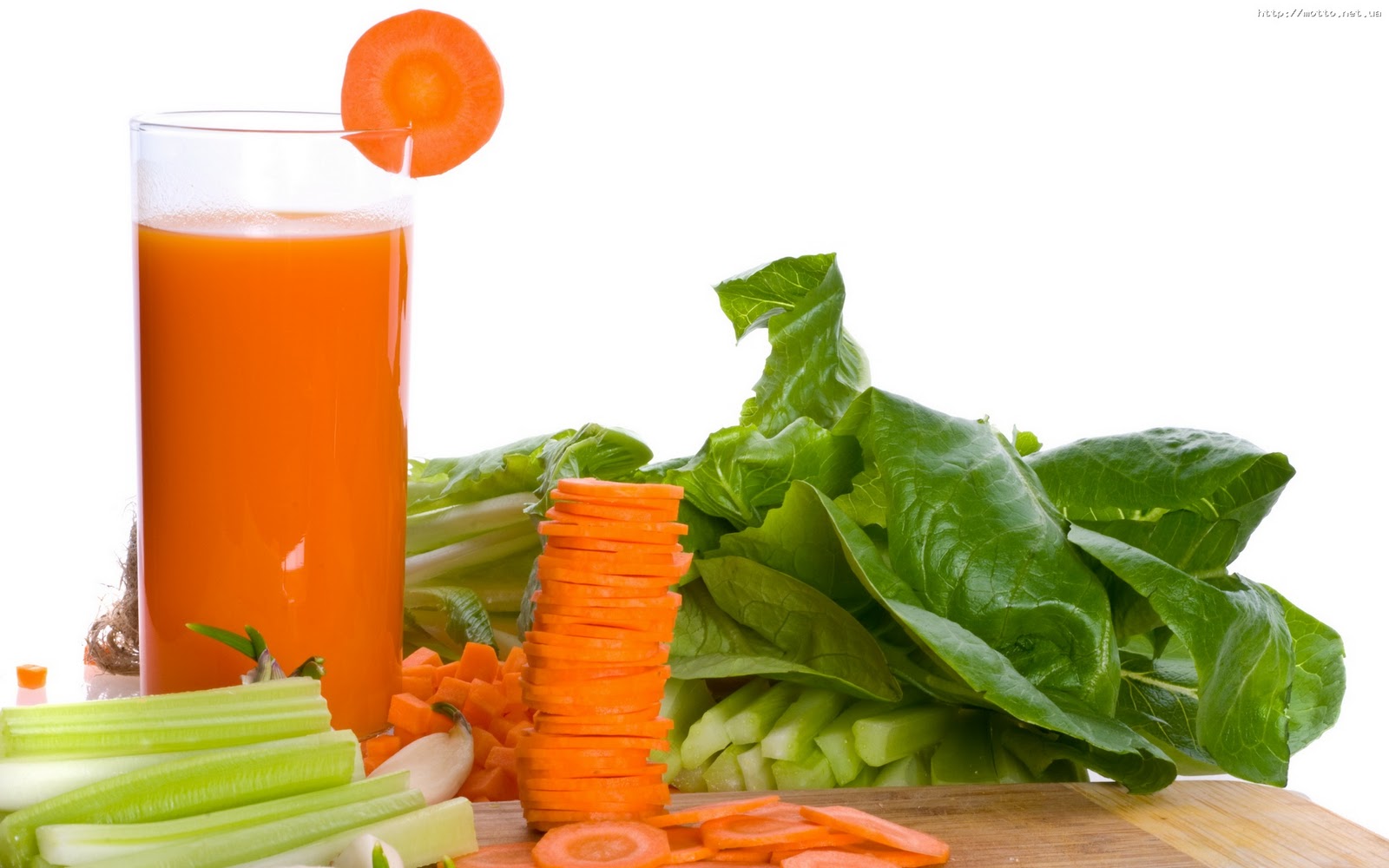
Acute gastritis manifests itself within 4-6 days bouts of pain of varying strength, a feeling of fullness in the stomach even before eating, periodic bouts of nausea sometimes ending in vomiting, diarrhea. The vomit may contain bile or mucus.
Pressure below normal pale skin And cold to the touch. Pain is noted on palpation of the upper abdomen.
Almost every type of gastritis manifests itself pain in the stomach, loss of appetite, discomfort before / after eating, nausea, sometimes vomiting, belching, flatulence and stool disorder constipation or diarrhea.
List of the main symptoms and signs of gastritis:
- Stomach pain/colic(irritation of nerve endings in the epithelium by food at unfavorable temperatures, toxic substances, contact of the deformed epithelium with gastric acid or bile, waste products of Helicobacter pylori)
- Heartburn(reflux of gastric secretions into the esophagus due to weakened sphincter or excess acid production)
- Distension in the epigastric region(overloading the stomach with hard-to-digest food, the fermented mass stagnates due to impaired organ motility, the glands produce an excessive amount of mucus)
- Belching(swallowing air during a hasty meal, fermentation processes in the stomach)
- Nausea(stagnant food, presence of infection, overeating)
- Vomit(spasm due to irritated organ walls, impaired motility of the stomach, stagnation of food due to violations in fermentation)
- Vomiting mucus(production of an increased amount of mucus due to inhibition of the work of the glands that produce hydrochloric acid, a violation of the process of releasing the stomach)
- Vomiting bile(reflux of fermented food from the intestines to the stomach, impaired secretion)
- Vomiting blood(inflammation of the lower layer of the mucous epithelium, perforation of the stomach wall, cancer of the digestive organ)
- Diarrhea(infection, disruption of the process of excretion of fermented food and the ingress of concentrated gastric juice into the intestines, stress)
- Motility disorder(stress, eating on the go, excessive pressure on the sphincters due to overeating, weakening of the muscles that ensure the movement of food due to hormonal imbalance, hernia)
Diagnostics
When contacting a medical institution, not only gastroscopy should be done, but also an ECG - because of the similar symptoms of acute gastritis and acute myocardial infarction. In parallel, you should make sure that the symptoms are not caused by an intestinal infection or life-threatening microflora.
The primary diagnosis of gastritis is carried out by obtaining information from the patient about his:
- feeling before/after/during meals,
- description of symptoms during the day,
- examination of the oral mucosa,
- palpation of the abdomen.
An accurate diagnosis is possible only after performing endoscopy and laboratory analysis of gastric secretions.
Treatment of gastritis
Treatment of any form of gastritis involves:
- Diet or strict diet according to a set schedule
- Prescribing medications after medical diagnosis
- Thorough chewing of ingested food
- Increasing the number of meals without increasing portions
- Rejection of bad habits
- Transition to healthy lifestyle life
Prescribing drugs is carried out according to the goals determined after the diagnosis is established.
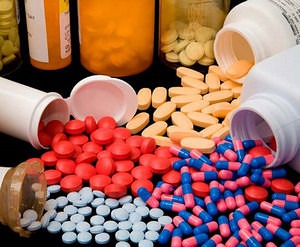
Types of effects of medications prescribed for gastritis:
- antibacterial(to suppress the vital activity of Helicobacter pylori or other representatives of pathogenic flora)
- enveloping(protection of the walls of the mucous membranes to reduce the degree of exposure of the gastric secretion to the affected areas)
- enhances the production of hydrochloric acid,
- reducing the production of hydrochloric acid.
A number of tablets used for gastritis:
- Rabeprazole, omeprazole, famotidine almagel prescribed to reduce the percentage of acid in gastric secretion.
- Cerucal And motilium improve gastric motility.
- Biogastron, neutral oils, misoprostol prescribed in order to increase the production of the mucous component of the secret.
- Antibiotics allow you to fight most infections.
With increased acidity use:
- potato, oatmeal,
- fresh potato juice
- water infusion of flax seed,
- chalk, milk,
- sunflower seeds.
Favorite folk remedies from low acidity are:
- pickle from sauerkraut and pickles,
- salty food,
- roasted sunflower seeds.
For any form of gastritis food should be fractional, with the selection of products, the digestion of which contributes to the increase / decrease in the production of hydrochloric acid.

- Thorough chewing of food contributes to the speedy cure of non-severe forms of gastritis.
- The food consumed should not be excessively hot or cold.
Patients with gastritis are prescribed a diet taking into account the symptoms of the disease.
If the disease is accompanied by an increase in acidity, a ban is introduced on:
- fried, fatty, spicy food (for its digestion, an increased amount of hydrochloric acid is required),
- fresh fruits and vegetables,
- food with coarse fibers (lean meat, preferably veal, young poultry),
- cereals and soups should be high in mucus.
Diet with low acidity or low gastric motility should spur the production of an aggressive component of the digestive secretion.
With flatulence it is forbidden to use foods that call for fermentation and increased gas formation (fresh yeast bread, legumes, culinary delights with a lot of cream).
The menu should be made taking into account the compatibility of products and the conditions for their successful digestion.
More detailed description read the menu on the page with a description of each individual type of gastritis.
One of the main dishes for gastritis - oatmeal cereal.
- For patients with gastritis on the background hyperacidity oats are boiled in water, seasoned with a tiny amount of homemade cream and salt. With gastritis with low acidity porridge can be boiled in milk.
- When cooking mashed potatoes to reduce the possible fermentation process during digestion, a certain amount of carrots is added to the peeled tubers. After bringing them to readiness, the vegetables are chopped and mixed.
Doctors
In most cases, gastritis is a manifestation of neglect of your body. An experienced person can help fix the situation. gastroenterologist or nutritionist.
If in the near future there is no way to get to a specialist, you can turn to a good therapist. Based on the information from the patient and the results of the tests, the doctor will be able to prescribe the appropriate therapy, advise on the appropriate diet and tell you how easy it is to switch to a light diet.
This is an inflammation of the lining of the stomach. There are two types of gastritis: with high and low acidity of gastric juice. In addition, acute and chronic forms of such a disease can be distinguished. Pain in gastritis is the first sign of this disease. Read further in the article about what pains with gastritis are in the case of acute and chronic forms of the disease.
How does the stomach hurt with gastritis?
Gastritis is a common gastric disease caused by inflammation of its internal mucosa. This inflammation usually leads to malfunction of the entire gastrointestinal tract.
Chronic gastritis of the stomach is characterized by constant inflammation of the gastric mucosa. At first, the disease can take place with various secretory accompaniments, although more often there are tendencies to a decrease in secretion and the level of acidity of the gastric secretion. Gastritis of the stomach with normal or increased secretion is often superficial or without atrophy of the gastric glands. It occurs most often in men at a young age. It is characterized by pain in gastritis, heartburn, belching, a feeling of heaviness in the stomach after eating.
The most common symptom of chronic gastritis is:
feeling of pressure and fullness of the stomach after eating
severe heartburn
nausea and vomiting
dull pain in gastritis
bad taste in the mouth
pain on palpation.
The nature of pain in gastritis reveals important diagnostic differences with hepatic colic. Stomach pains rarely begin completely suddenly. They reach their greatest intensity in 10 minutes, and sometimes more slowly, while during gallstone disease, the pain often reaches its highest level after a couple of minutes.
Unlike the symptoms of gallstone disease, gastritis pain is also slower and subsides. Based on the mode of occurrence and intensity of the pain, diagnostic conclusions are hardly possible, although the pain is usually more intense in cholelithiasis than in gastritis.
How does hypertrophic gastritis hurt?
Chronic gastritis has two varieties. These are hypertrophic and atrophic hyperplastic gastritis.
The first reveals a close connection with gastric ulcer, and the second - with oncology.
Hypertrophic gastritis is characterized by:
Pathologically irritable stomach, and does not differ significantly from the symptoms of a patient with peptic ulcer.
There is a more frequent frequency of complaints of pain, their seasonality, followed by an increase in the set of symptoms in the off-season and, depending on the location, late or early hunger pains. Hungry pains are given particular importance in the diagnosis of duodenal ulcers or duodenitis.
Regular morning or evening pain in the upper abdomen, even in the absence of known clinical symptoms, is regarded as a duodenal ulcer or without an ulcer. In contrast, with gastritis, pain is observed for a long time throughout the day, and late or early pain can also be superimposed on them.
Relief of gastritis pain
Most often, treatment is carried out at home, it takes about three weeks, but chronic gastritis is treated longer, up to 2 years. Medicines include enveloping adsorbing toxins, gastritis pain remedies that improve digestion and reduce acidity. Antibiotics are sometimes prescribed to get rid of an infection in the stomach.
If gastritis hurts and is accompanied by heartburn and sour belching, then drugs such as Phosphalugel in combination with Maalox are used to treat it. Treatment and doses should be prescribed by a doctor. To improve the motor function of the stomach, Motilium can be prescribed. If healing of the gastric mucosa is necessary for gastritis and pain in the middle of the abdomen, Solcoseryl, Caleflon, Gastrofarm and other drugs may be recommended. Sea buckthorn oil is excellent for healing the gastric mucosa with pain from gastritis.
Regardless of the content of the course of treatment for chronic gastritis of the stomach, it is constantly recommended:
follow a diet
limit spicy, hot, rough foods and dishes,
reduce the consumption of coffee, alcohol, carbonated drinks,
completely eliminate smoking.
All food and drinks for gastritis and pain in the middle of the abdomen should be of normal temperature, not too cold or hot;
It is necessary to chew solid food thoroughly;
Meals for gastritis should be divided into several times a day, at least 5 and in small portions.
A nutritionist or gastroenterologist will help to draw up the most appropriate schedule and composition of nutrition for relieving pain in gastritis.
If gastritis is not treated or treated poorly, then it can transform into an unpleasant chronic disease - a stomach or duodenal ulcer. And such diseases are much more difficult to cure.
Causes of pain in various forms of gastritis
The immediate cause of pain in acute gastritis usually cannot be accurately determined, as in cholelithiasis, although there is usually a direct temporal relationship with the intake of highly fatty and indigestible foods.
The causes of pain in the acute form of gastritis include:
Constant stress, nervous and depressive states.
Hard work, in which the daily routine and the natural activity of the body are disturbed.
Malnutrition - dry food, fast food, low-quality food.
Drinking large amounts of alcohol and smoking.
The presence in the body of the bacterium Helicobacter pylori.
There is also inflammation of the mucous membrane as a result of autoimmune processes in the body, without the influence of external causes.
Incorrect and irregular, without regime food.
Causes of pain in chronic gastritis
The disease is the result of the development of a form of acute gastritis, but often appears under the influence of certain adverse factors, such as constant eating disorders, eating spicy and spicy foods, poor chewing, drinking alcohol. The cause of pain in chronic gastritis can be:
malnutrition,
lack of proteins, iron, vitamins,
long-term medication,
production hazard,
hereditary disposition.
Pain in chronic gastritis sometimes appears along with cholecystitis, colitis and other diseases.
Gastritis is an inflammatory infection gastric mucosa, which occurs for various reasons - from malnutrition to disruption of the central nervous system. Depending on the duration and main manifestations, two forms of gastritis are distinguished: acute and chronic. leads to atrophy of the gastric mucosa, causes the development of a peptic ulcer or a malignant tumor of the organ.
Gastritis of the stomach is diagnosed in people of any age, mainly in men from 25 to 45 years old who have bad habits and abuse alcohol. Most modern experts believe that this disease is not inherited. Diagnosing it in members of the same family is associated with the same conditions of their life, primarily nutrition.
Symptoms of gastritis
Inflammation of the mucous membrane of the digestive organ may not manifest itself for a long time. In many patients first signs of gastritis occur in the first week of illness. This is, as a rule, heaviness in the stomach that occurs at the time of eating or after some time, heartburn, nausea, sometimes accompanied by vomiting. The main symptom of gastritis - aching pain in the epigastric region can also be a manifestation of peptic ulcer. Differentiation of these pathologies from each other is only possible for a specialist.
The chronic form of gastritis proceeds without noticeable manifestations or its manifestations are erased. These can be: belching, bad breath, barely noticeable pain in the stomach, which patients usually do not pay attention to, a feeling of heaviness in the abdomen. Indigestion, frequent upset stools, constipation can also be evidence of an inflammatory process in the gastric mucosa.
Treatment of gastritis
Diagnosis of the disease includes the following studies:
- gastroscopy - examination of the gastric mucosa with the help of special equipment;
- laboratory study of gastric juice;
- biopsy of the gastric mucosa;
- laboratory analysis of blood, feces.
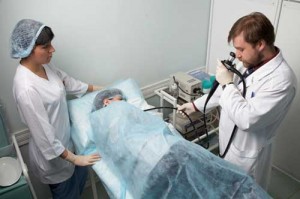 During the diagnosis of gastritis, a specialist needs to establish the main cause of the pathology. Further therapy will largely depend on this.
During the diagnosis of gastritis, a specialist needs to establish the main cause of the pathology. Further therapy will largely depend on this.
And now about how to treat gastritis. The acute form of the disease is much easier to treat than the chronic form. The patient is prescribed drugs that reduce the acidity of gastric juice ( Altacid, Almagel), since hydrochloric acid irritates the mucous membrane of the organ and contributes to the development and intensification of the inflammatory process. When diagnosing infectious gastritis caused by the bacterium Helicobacter pylori, antibiotics are indicated for admission. A specific drug is selected by a specialist, taking into account the general health of the patient, the presence of contraindications, etc.
As an adjunctive therapy for gastritis, painkillers, anti-inflammatory drugs, drugs, the action of which is aimed at eliminating symptoms such as heartburn, nausea and heaviness in the stomach, can be taken.
Treatment of gastritis with folk remedies
Gastritis is a very common disease that, if left untreated, leads to serious consequences. It has been established that chronic inflammation of the gastric mucosa leads to the development of peptic ulcer, and in some cases to a malignant tumor of the organ. Therefore, self-treatment this disease unacceptable. Treatment of gastritis at home can be carried out only after establishing an accurate diagnosis and with the permission of the treating specialist.
Traditional medicine recommends treating inflammation of the gastric mucosa medicinal plants(large plantain, sea buckthorn, chamomile, wild rose, etc.) and herbal preparations. The course of treatment with sea buckthorn oil for gastritis lasts 1 month. This remedy has an anti-inflammatory and wound-healing effect. Sea buckthorn oil is taken in a teaspoon half an hour before meals, 1 time per day. On the recommendation of a specialist, the course of treatment can be extended up to 2 months.
When choosing this or that remedy, the acidity of the stomach should also be taken into account. it is useful to take a few tablespoons of potato juice daily in the morning before meals; with low acidity, decoctions of St. John's wort, blueberry leaves, and plantain should be consumed daily.
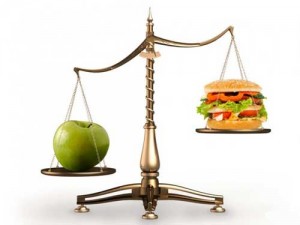 An integral part of the treatment of inflammatory diseases of the stomach is diet. excludes: salty, fried foods, smoked meats, fatty meats, rich broths, sour fruits. Food for the patient is prepared without adding a large amount of salt and spices, he is shown daily consumption of cereals from various cereals, boiled meat, low-fat broth, boiled fish, jelly.
An integral part of the treatment of inflammatory diseases of the stomach is diet. excludes: salty, fried foods, smoked meats, fatty meats, rich broths, sour fruits. Food for the patient is prepared without adding a large amount of salt and spices, he is shown daily consumption of cereals from various cereals, boiled meat, low-fat broth, boiled fish, jelly.
Diet for gastritis of the stomach compiled by a specialist. Nutrition may vary depending on the acidity of the stomach. Patients with high acidity are advised to use foods that reduce the production of hydrochloric acid by the body. Such products include milk soups, stewed or steamed vegetables, natural juices from sweet fruits. Persons with low acidity of the stomach are recommended to eat foods such as rice, lean meat, sour-milk products.
The patient's diet should be fractional, he needs to eat food in small portions up to 6 times a day.
Tablets from gastritis
Exists great amount medicines for the treatment of gastritis. Most of them are available in the form of tablets and suspensions. Gastritis pills include:
- Vikalin- a herbal preparation with antispasmodic, antacid and astringent effects;
- Festal- a drug based on pancreatin, which helps to restore the functions of the stomach and pancreas;
- Gastrocepin- a blocker of M1-cholinergic receptors, the action of which is aimed at reducing the production of gastric juice and protecting the mucous membrane of the organ from exposure to an aggressive alkaline environment.
You should not independently prescribe yourself and your loved ones the intake of certain drugs. This can lead to undesirable consequences and complications. That, how to cure gastritis, the gastroenterologist knows. Only he can accurately diagnose the disease and prescribe medication.
Inflammation of the gastric mucosa affects a significant part of the population. In the acute form, the symptoms of gastritis are manifested by painful sensations in the upper abdomen. If the factors that irritate the mucous membrane are not eliminated, the inflammation becomes chronic. Signs of a chronic variety are less pronounced and often accompany other diseases.
Causes of the acute form
Symptoms of gastritis appear when the gastric mucosa is damaged. Various factors influence:
- irregular meals, malnutrition and overeating, haste while eating;
- poor chewing of food, often associated with unhealthy teeth;
- low-quality products, abuse of fried, spicy, spicy, coarse food;
- insufficient intake of protein and vitamins, which causes less gastric juice to be produced;
- regular drinking, smoking;
- long-term medication: antibiotics, aspirin, hormonal drugs;
- unhealthy organs digestive system, violation of peristalsis, why bile is in the stomach and causes inflammation of the mucosa;
- signs of gastritis are manifested in case of an imbalance in the intestinal microflora, the penetration of viruses, bacteria, streptococci, staphylococci, salmonella.
The symptoms of acute gastritis are caused by stress associated with a significant risk to life or health. Signs of the disease appear as a result of shock, major surgery, severe trauma, severe burns. Erosion of the gastric mucosa may be accompanied by profuse bleeding.
In advanced cases of acute gastritis, the mucosa is damaged to the muscle tissue. The stronger the pain and the deeper the inflammation.
Causes of chronic gastritis

Chronic gastritis occurs with poor-quality or incomplete treatment of the acute form.
Intestinal infections, inflammation of the palatine tonsils or gallbladder, infection with Helicobacter pylori Helicobacter pylori support the chronic form.
Hereditary predisposition contributes to the appearance of symptoms of chronic gastritis of the stomach.
The chronic form develops in conditions of harmful production, when dust, fumes of acids or alkalis, and harmful chemical compounds are swallowed daily.
Constant inflammation of the gastric mucosa is associated with a particular allergy.
The composition of gastric juice for the breakdown of protein foods includes pepsin. If a failure occurs, pepsin acts on the mucous membrane containing the protein, causing inflammation, as the stomach begins to digest itself.
Symptoms of acute gastritis of the stomach

Signs of acute inflammation of the mucosa appear suddenly and are caused by overeating, poor-quality food, allergic reaction on certain foods, stress.
Symptoms of an acute form of gastritis of the stomach:
- severe pain in the upper abdomen;
- the temperature rises, sometimes up to + 38C;
- there is a feeling of fullness in the stomach;
- belching sour, with a bad smell;
- , dryness or excessive salivation;
- heartburn, nausea, vomiting with food debris, mucus, bile, often with blood inclusions;
- the stomach swells, discomfort is felt, constipation or diarrhea often occurs;
- headache and dizziness;
- general weakness, aversion to food.
Symptoms of chronic gastritis

In chronic form, periods remissions, almost complete disappearance of symptoms of gastritis, alternate with exacerbations.
The structure of the mucosa changes, it becomes thinner, which disrupts the production of gastric juice, as well as the secretory, motor functions of the stomach.
Chronic gastritis is often combined with diseases of the digestive system (colitis, duodenitis, cholecystitis, pancreatitis), is the cause of one of the varieties of anemia (anemia).
Symptoms of the chronic form of gastritis of the stomach appear in the case of other diseases, which makes it difficult to make a correct diagnosis. The following signs are observed:
- dull aching pain after eating at the top of the stomach, less often in the left or right hypochondrium;
- distension and fullness of the stomach;
- unpleasant taste in the mouth;
- heartburn, belching sour;
- lack of appetite;
- constipation.
In some cases, these manifestations are absent.
Chronic gastritis occurs when it enters the stomach helicobacteria able to exist and multiply in the aggressive environment of gastric juice. This form of the disease is manifested by symptoms:
- lack of appetite, rapid satiety;
- bloating after eating, a feeling of fullness and fullness;
- belching, heartburn;
- profuse salivation.
The chronic form is subdivided into gastritis with low and high acidity, determined by secretory insufficiency or redundancy.
With low acidity, it makes you feel sick, saturation quickly sets in,. Those suffering from this type of disease are prone to weight loss, dry skin, sparse hair and brittle nails.
In case of hyperacidity , belching sour, nausea, bad taste in the mouth.
Insufficient and increased production of juice in chronic gastritis

A symptom of the chronic form of the disease is the amount of gastric juice produced. If there is little juice, gastritis with secretory insufficiency is diagnosed (hypoacid). If a lot - with increased secretory activity (hyperacid).
These varieties of the disease differ in signs and principles of treatment.
Symptoms of gastritis insufficient production of stomach juice :
- weak aching pains, pressure at the top of the abdomen;
- belching rotten;
- nausea or vomiting;
- rumbling and flatulence;
- lack of appetite, which causes weight loss;
- brittle hair and nails;
- liquid stool;
- lethargy, rapid fatigue.
Signs of gastritis of the stomach with increased secretory activity :
- severe pain after or during meals;
- belching but not rotten;
- heartburn, nausea, vomiting;
- constipation;
- frequent mood swings, irritability;
- insomnia.
Despite the absence of clear symptoms of chronic gastritis of the stomach, an experienced doctor is able to quickly make a diagnosis. In some cases, an unpleasant examination is required.
Diet for gastritis of the stomach
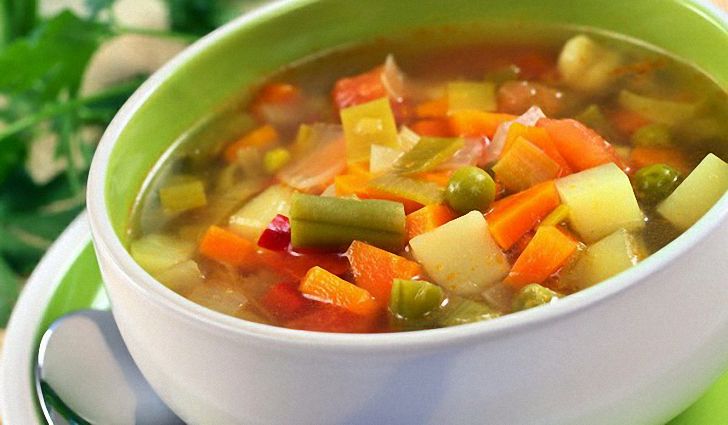
After detecting the symptoms of chronic gastritis and making a diagnosis by a doctor, you have to change the diet, taking into account the effect of each product on the secretory and motor function of the stomach.
Often, a properly formulated diet helps to cure the disease.
The diet should be varied, include the necessary nutrients, minerals, vitamins. Dishes are steamed, boiled, stewed, mashed, boiled porridge.
Eat slowly, in small portions, but often, 5-6 times at certain hours. Thoroughly chew food heated to a temperature of +36..+37C.
It is especially important to observe a diet during an exacerbation, when the mucous membrane is overly sensitive.
On the secretory and motor function of the stomach almost do not affect: pureed vegetable or milk soups, boiled meat, fish or steamed scrambled eggs, whole milk or cream, low-fat sour cream and cottage cheese, weak tea with milk, jelly, diluted sweet juices and compotes, fruit purees.
Secretion of gastric juice intensifies when consumed: meat, fish, fatty and fried foods, smoked, pickled, salty, sour-milk products, muffins, sour vegetables or fruits, seasonings and spices, coffee, tea, cocoa, carbonated drinks.
Diet for gastritis with insufficient secretory activity
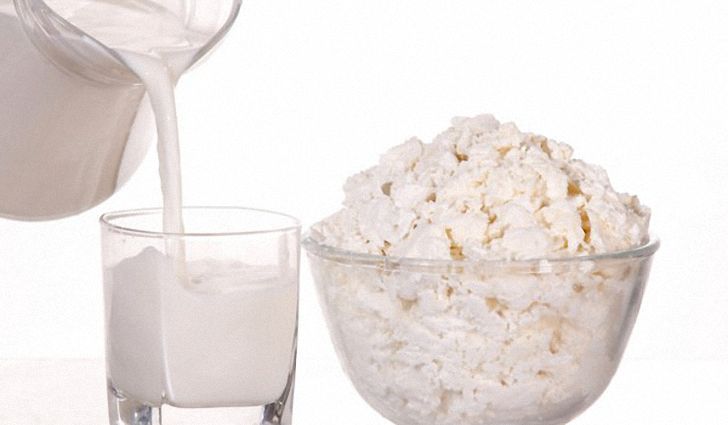
If symptoms of gastritis of the stomach with reduced secretion of juice are detected, the diet should stimulate appetite, help restore impaired secretion and consist of the following dishes:
- Soft-boiled eggs, fried scrambled or steamed scrambled eggs.
- Yogurt, kefir, sour cream, cottage cheese, curds.
- Grated mild cheese, lightly salted soaked herring, salads of boiled vegetables with meat, fish, eggs, low-fat ham, liver pate, vegetable and sturgeon caviar.
- Creamy, refined vegetable, melted butter.
- Soups with finely chopped vegetables in meat, fish, mushroom broth, mashed cereal soups in vegetable broth. Borscht, beetroot soup, fresh cabbage soup.
- Pureed cereals in water or milk, cereal cutlets, vermicelli.
- Cutlets from veal, pork, lamb, poultry, fish.
- Vegetable puree and cutlets, boiled and stewed vegetables, potatoes, pumpkin, zucchini, beets, carrots, tomatoes, cabbage, green pea.
- Fruit purees, jelly, compotes, baked apples, honey, sugar, jam, sweets, oranges, tangerines, skinless grapes, watermelon.
- Tea, cocoa, coffee with milk.
- Diluted vegetable or berry juices, rosehip broth.
It is forbidden fried, fatty meat and fish, bacon, smoked, legumes, onions, radishes, cucumbers, mushrooms, sweet peppers, canned food, chocolate, garlic, horseradish, mustard, berries with small grains (raspberries, red currants), with hard skin ( gooseberries, apples), grape juice,
Food is allowed to be salted.
Diet for gastritis with increased secretory activity
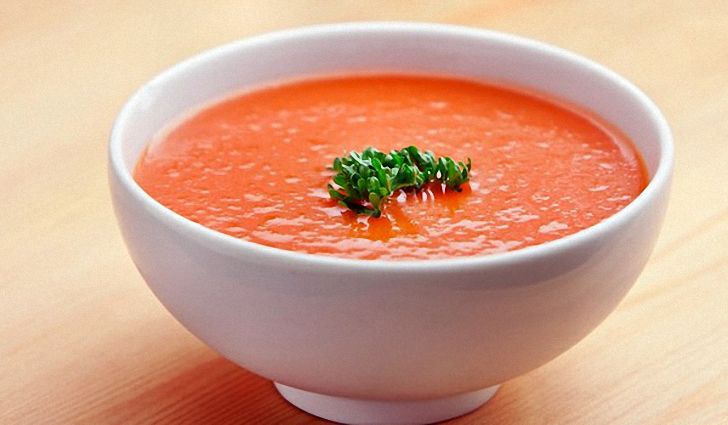
With inflammation of the gastric mucosa, accompanied by abundant secretion of juice, the following dishes are useful:
- Yesterday's wheat bread, lean biscuits.
- Steam omelet, soft-boiled eggs.
- Whole or condensed milk, cream, grated cottage cheese, mild cheese.
- Lean unsalted ham, boiled vegetable salad.
- unsalted butter, refined vegetable oils added to ready meals.
- Soups from mashed cereals, puree soups from non-acidic vegetables on a cereal broth, milk soups with small vermicelli.
- Lean beef, veal, chicken, rabbit, turkey, fish, boiled or steamed.
- Cereals in milk or water from rice, buckwheat, oatmeal, semolina, chopped pasta or vermicelli.
- Potatoes, beets, carrots, pumpkins, zucchini, with care green peas and dill.
- Sweet berries, compotes, fruit jelly, jelly, jam.
- Sweet juices, rosehip broth.
- Weak tea, cocoa with milk or cream.
In the first days of exacerbation, you should not eat bread, vegetables. Prepare meals in a mashed form.
Fatty meat, fish, salted, smoked, canned, muffin, cabbage, turnip, radish, sorrel, onion, cucumbers, not pureed vegetables and fruits, black coffee, chocolate, carbonated drinks, kvass are prohibited.
Treatment of gastritis with folk remedies
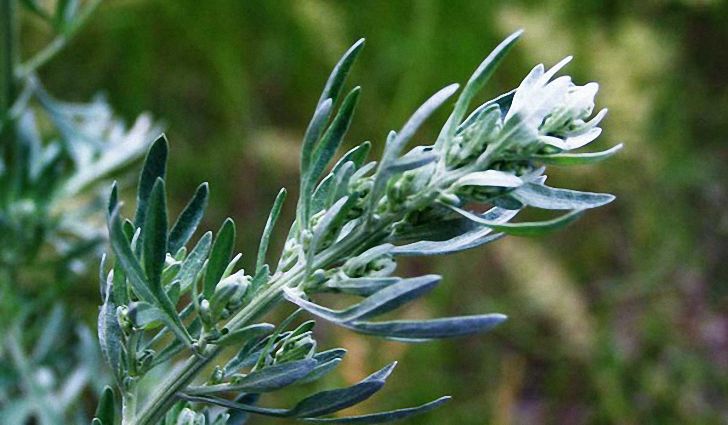
At the beginning of herbal treatment, pain may increase, heartburn will appear. After a while, the state returns to normal.
When symptoms of gastritis of the stomach with reduced secretion are detected, it helps sagebrush. Folk remedies reduce inflammation of the mucosa,.
- grind wormwood, rhizomes calamus, fruits cumin taken in equal parts. Brew 1s.l. mixture with a glass of boiling water, simmer in a water bath for 15 minutes, strain. Add boiled water to the decoction, bringing the volume to a full glass. Take 1s.l. half an hour before meals.
In case of symptoms of gastritis with increased secretion of gastric juice, chamomile, St. John's wort, calendula, plantain. Data folk remedies relieve inflammation of the mucosa.
- Mix flowers in equal parts calendula officinalis, flowers chamomile, leaves plantain, grass yarrow. Brew 1s.l. mixture with a glass of boiling water, insist for two hours in a sealed container, strain. Bring the volume of boiled water to a full glass. Take a third of a glass half an hour before meals.
Gastritis is the inflammatory process of the walls of the digestive organ, as a result of which its functions are significantly impaired. This disease, like any other disease, can be effectively treated on early stages, therefore, the first signs should be recognized in a timely manner. Treatment of the disease depends on its type, since inflammation of the stomach can be acute or chronic, and also cause low or high levels of gastric acidity.
Today, many people of different ages suffer from gastritis, both adults and children are among the patients. According to statistics, about 50% of Russians suffer or have suffered from gastritis.
This disease is characterized by many manifestations, which are its signs. Various symptoms of gastritis are due to its different types and acidity level. Such symptoms cannot be ignored, since damage to the gastric mucosa is fraught with serious consequences for patients.

First signs
It is possible to think about the possible occurrence of such an ailment as inflammation of the gastric mucosa when the patient feels the manifestation of such symptoms:
- soreness in the stomach,
- the upper abdomen suffers from a feeling of heaviness, and often this happens at a time when a person has eaten,
- heartburn, belching and other signs of excess acid,
- the patient's tongue may be covered with a white coating,
- low body temperature, about 37 degrees,
- bowel disorders,
- nausea and vomiting.
Of course, this symptomatology can also signal other problems with the gastrointestinal tract, or be the result of a simple bowel disorder. But if several of the listed signs appear at once, or if a person often suffers from them, then, most likely, all this is due to the inflammatory process of the stomach. In such a situation, the patient should visit a gastroenterologist who examines the patient's stomach and makes an accurate diagnosis. Timely treatment of gastritis will help to permanently get rid of the unpleasant manifestations of the disease.
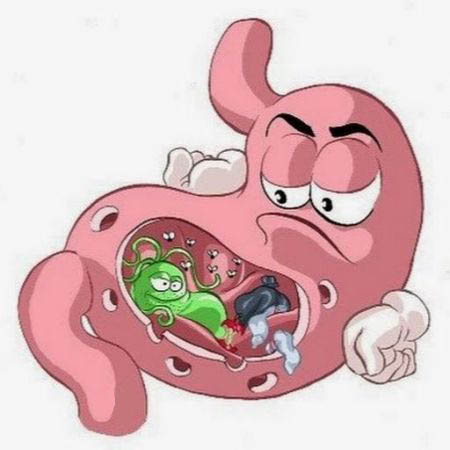
Symptoms of gastritis
Different forms of gastritis may have different symptoms, or they may not manifest themselves in any way. The most characteristic symptom is pain in the upper abdomen. It intensifies after eating, and especially when a person takes food or medicines that adversely affect the gastric mucosa. Pain can intensify when a person does not eat anything at all and his digestive organ is empty. In connection with this, with inflammation of the walls of the stomach, it is forbidden to drink carbonated water, alcoholic beverages and eat spicy food.
Belching, vomiting and heartburn are considered constant signs of inflammation of the walls of the stomach. Often patients suffer from gas discharge and bloating. Experts believe that the disease can be diagnosed when several signs of the disease appear simultaneously.

It becomes more difficult to diagnose chronic gastritis. For a long time, the symptoms of this disease are manifested only by a coating on the tongue, unstable stools, decreased performance and rumbling in the stomach. And dyspeptic disorders appear only occasionally during a chronic inflammatory process of the stomach. With a disease of the stomach, the quality of life is significantly reduced, although this disease does not cause any serious changes. If the disease proceeds in a mild form and is chronic, then the patient notices only constipation and diarrhea that occur occasionally. A severe form of the disease can cause a lack of iron in the blood, a bad taste in the mouth, regular gas, a constant desire to sleep and fatigue.
Signs of high acid gastritis
Apart from common features diseases that were previously listed, with high acidity, other signs of the disease are observed:
- diarrhea, which often occurs in the patient,
- belching, which often occurs,
- pain in the solar plexus area, which can disappear only after eating,
- Eating sour food causes heartburn.
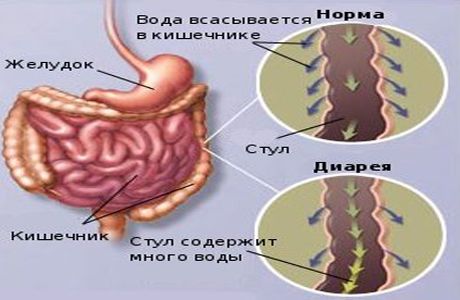
Signs of low acid disease
When there is not enough enzymes and acid in the gastric juice, then the signs of the disease have the following manifestations:
- nausea, especially in the morning,
- bad smells in oral cavity,
- bad breath,
- belching with a rotten smell,
- bowel irregularity,
- heaviness in the digestive organ after eating.
Signs of an exacerbation of the disease
Chronic gastritis can worsen, and this process is manifested by a variety of symptoms. Signs of acute gastritis:
- burp,
- burning in the esophagus,
- the taste in the mouth resembles the taste of metal,
- short-term or persistent pain in the epigastric region,
- increased pain occurs after eating or with a long absence of food in the stomach,
- vomiting in the morning, nausea,
- vomiting with an admixture of bile,
- cardiopalmus,
- headache and dizziness
- constipation or diarrhea,
- water scarcity,
- weakness, intensive formation of salivary fluid.
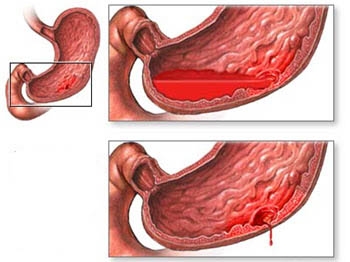
When gastritis is accompanied by erosions or other damage to the walls of the stomach, the patient may vomit with blood or other dark clots. In the presence of gastric bleeding, the patient's feces look black. Bleeding in the stomach area is often difficult to determine and therefore the confirmation of this diagnosis can only occur using laboratory methods. Abundant discharge of blood is accompanied by pallor of the skin, tinnitus and dizziness.
Pain due to gastritis
Pain in the inflammatory process of the stomach is called gastralgia. This is one of the most important signs of gastritis of the stomach. Soreness may have a different character if it is localized in the abdomen, given state called an acute abdomen. Such sensations are in the nature of pain, sensations are burning, stabbing or cutting.
Acute abdomen syndrome is pain caused by pancreatitis, cholecystitis, oncological tumors, inflammation or damage to the appendix, blockage, reflux and other intestinal lesions. Such pains tend to occur along with other signs of the inflammatory process of the stomach. That is, along with pain, constipation, diarrhea, fever, nausea, vomiting and belching appear.
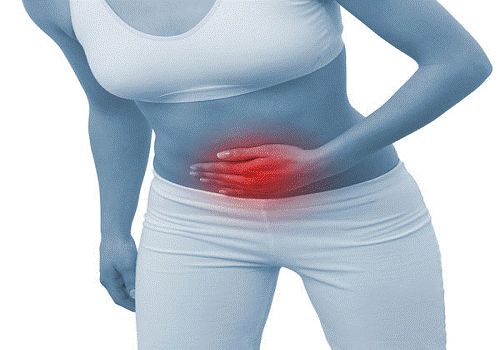
If the pain in the stomach area manifests itself somehow differently, then in order to determine the cause of their origin, one should apply laboratory methods and get checked out by a specialist. Without proper research, the symptoms of gastritis can be confused with other diseases of the intestines or other internal organs.
Treatment of gastritis
When diagnosing a patient with acute gastritis, the stomach is washed with saline. Washing is carried out as follows: the patient should drink a lot of saline, then induce gag reflexes, irritating the tongue with your fingers. Rinse the stomach until the water coming out is clear. The next day after this, a therapeutic hunger is recommended, the patient is allowed to drink only warm tea, a decoction of rose hips, chamomile and other medicinal herbs, and also drink mineral water without gas.

After the washing procedure and after hunger, the patient is prescribed a therapeutic diet. It is recommended to eat soups from slimy cereals, eat pureed cereals and omelettes, as well as drink jelly and eat low-fat meat soufflé. After such a menu, dairy products, boiled vegetables and bread, previously dried, lean, are added to the food. Normal nutrition can be started within a week.
Attacks of nausea and vomiting can be eliminated by taking Cerucal or Motilium. And "Papaverin" or "Platifillin" will help eliminate the pain. Antibiotic therapy is required only in cases where the patient's body was susceptible to toxic infections. Such treatment is carried out in hospitals, since it is not recommended to prescribe such drugs to yourself.
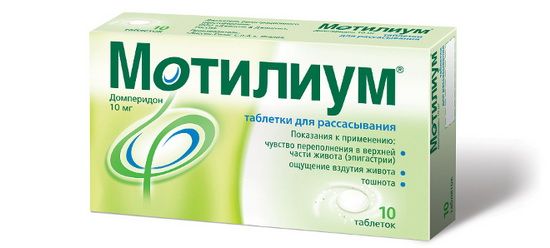
When the disease was provoked by the Helicobacter bacterium, treatment involves eradication, which also occurs when a chronic type of gastritis of the stomach is affected. If inflammation has developed due to the influence of alkalis or acids on the walls of the organ, then its symptoms are always supplemented by swelling of the larynx and kidney disease, so self-treatment of this disease can only harm the patient. With the manifestation of allergic gastritis, its treatment begins with the determination of the allergen, and in the future the patient must keep a food diary.
Chronic gastritis is treated a little differently. If the disease was caused by the bacterium Helicobacter, then the treatment is to eradicate the body. First, doctors use hydrogen pump blockers, these are Pariet and Omeprazole. Within 10 days, the patient is given the appropriate doses of Clarithromycin and Amoxicillin. If in this way it was not possible to eliminate the bacterium, then the treatment should be supplemented with other drugs, conducting it after a month and a half. In this case, De-nol is added to the same drug.
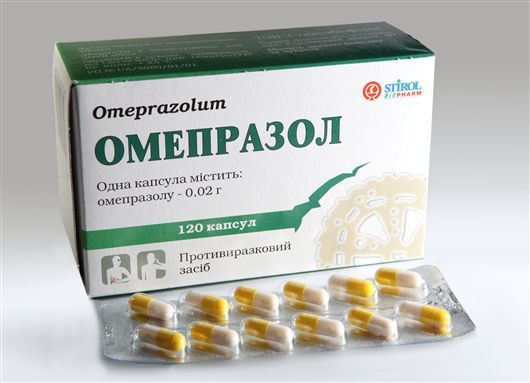
There are some exceptions to this treatment, for example, with an antacid form of gastritis, hydrogen pump blockers are removed from standard therapy. This is due to the atrophy of those cells of the gastric walls that produce acid.
During the period of treatment of the disease, when the production of stomach acid is normal or increased, those drugs are used that can eliminate the production of acid. These measures help relieve pain and speed up the recovery process of the mucous membrane of the digestive organ.
The eradication treatment includes hydrogen pump blockers, this is the drug "Omeprazole". You can replace this remedy with the help of drugs "Famotidine" or "Ranitidine". For a short time, patients are prescribed drugs that help relieve the unpleasant symptoms of gastritis, these are anticides "Maalox", "Almagel" and "Gastal", anticholinergics "Metacin" and "Atropine", as well as combined medicines, Roter and Vikalin.
With reduced acidity for the duration of therapy, the acid should be restored. For this, gastric juice substitutes and polyenzymatic preparations, such as Abomin, Enzistal and Penzital, are used. Such measures will help eliminate pain and normalize acid secretion. When the patient suffers from vomiting or feels nausea, he is recommended to use Domperidone, Cerucal and Cisapride.
Diet food
Nutrition for inflammation of the stomach with high and low acidity is different, since in these cases it is necessary to stimulate or suppress the production of enzymes by the cells of the walls of the stomach. With reduced secretion of the stomach, it is necessary to adhere to the following principles of nutrition:
- the use of soups from cereals and vegetables, cooked on light broths,
- lean meat, you can even fried, but it should not have a hard crust,
- the use of any kind of low-fat varieties of fish,
- dairy products,
- stale bread or crackers,
- vegetables and fruits can be consumed both raw and boiled,
- eggs and milk are consumed raw or boiled,
- porridge can be prepared from different cereals, having boiled them well and wiped them,
- butter can be added to dishes,
- drink fresh juices
- from drinks you can drink tea, coffee and cocoa, boiled in water or with the addition of milk,
- It is best to eat meals in the form of mashed potatoes, and eat small portions about 5 times a day.
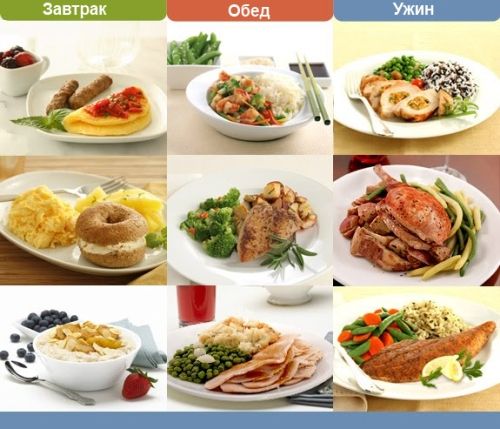
A high percentage of hydrochloric acid excretion must be neutralized, and this is also done with the help of therapeutic nutrition. You can reduce the production of hydrochloric acid in the stomach using the following nutritional principles:
- it is forbidden to eat any fried food,
- dairy products can be eaten non-acidic, for this they take yogurt, kefir, cheese, fresh cottage cheese, yogurt and cream,
- eggs are steamed or boiled,
- meat and fish of low-fat varieties are boiled,
- vegetables and herbs are mashed, after boiling them,
- from raw vegetables eat lettuce, dill and onion,
- you should abandon the rich dough, replacing it with crackers and stale bread,
- meat should be chosen of low-fat varieties, these are ham, ham and diet sausages,
- from smoked meats you can eat only low-fat fish,
- soup is cooked from light broths, cubes cannot be used for this, cereals and mashed vegetables are added to soups,
- you can use thin small pasta,
- you can eat well-cooked cereals from any cereals,
- you can eat fats - this is vegetable and butter,
- you can’t eat sauces other than those made from sour cream or cooked in meat broth or fish broth,
- exclude spices, but allow adding cinnamon and bay leaf to dishes,
- from drinks tea, cocoa and coffee are allowed.
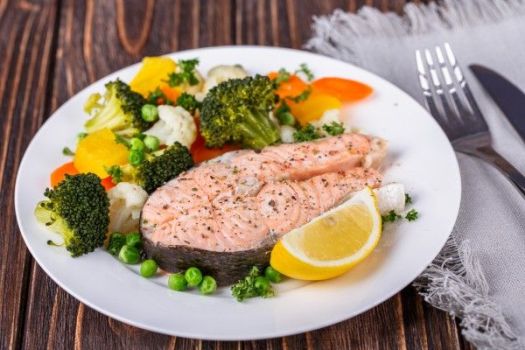
On an empty stomach, patients are advised to drink a glass of water, this helps to cleanse the intestines. With gastritis with increased level acid in the stomach is forbidden to drink alcoholic beverages, rolls, confectionery, hard cheeses, legumes, rye bread, fried eggs and pasta and thick pieces. It is forbidden to eat with such a disease fried foods, fried meat and fish, canned food, radishes and cabbage, and also eat fruits along with the peel. Fat, grapes, fatty sour cream, spicy dishes, chocolate, sternum part are excluded from the diet. You should eat 5 times a day, eating a small amount of food at a time.

Folk methods
You can cure the disease with the help of methods traditional medicine. For this, medicines are prepared from medicinal herbs or from food. For example, carrot juice is great for fighting chronic gastritis. On an empty stomach, you can take about a third of a glass of this drink. Treatment carrot juice Gives results after 3 weeks.
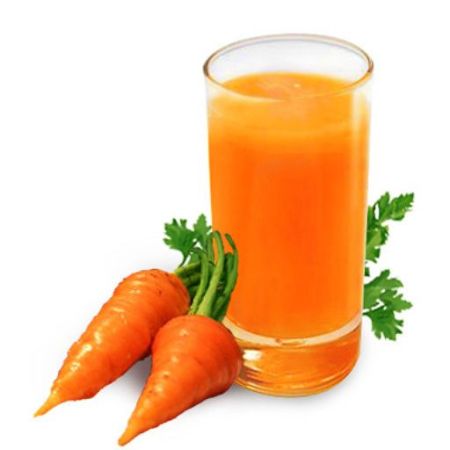
To treat this disease, juice from potato tubers is suitable. potato juice take a third of a glass 3 times a day, and are treated like this, regulating the acidity of the stomach, for two weeks. If, after drinking the juice, lie down on the bed for half an hour, then the medicine will get used to it better.
Here are a few more recipes for gastritis:
- Oats are a popular remedy for gastritis. Oatmeal is prepared by soaking it overnight. In the morning, the cereal is boiled and consumed, it is an excellent enveloping agent that helps relieve the symptoms of gastritis with a high level of acidity.
- White cabbage juice is consumed warm, taking 100 grams of it in the morning and evening, for 2 weeks. Already squeezed juice can be stored in the refrigerator for 2 weeks.
- The production of acid with low acidity is stimulated by a green plantain leaf, which you just need to eat every day.
- About 10 grams of propolis, eaten before meals, on an empty stomach, helps protect the stomach from unpleasant manifestations of gastritis.
- With gastritis with constipation, aloe becomes an excellent remedy. A whole month should be treated with a few tablespoons of aloe juice, taking them three times a day before meals.
- Three times a day they drink a decoction of mint, using it in the amount of 1 tablespoon.
- With high acidity, it is recommended to drink a warm solution of honey.
- In the morning it is useful to eat apples, grated on a fine grater. You can eat after apples only after 3 hours.
- As medicines for chronic gastritis, you can use decoctions of wild strawberries, birch buds, burdock, rhubarb, sea buckthorn, currants or bird knotweed.

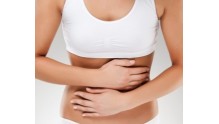
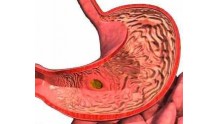
Zhenya
During pregnancy, I had heartburn and heaviness in my stomach, I thought it was a common thing, but the doctor sent me for examination. They diagnosed gastritis and found Helicobacter pylori. I didn’t know what to do, because you can’t take strong antibiotics, but you definitely need to be treated! The situation was saved by Helinorm, which can be used by pregnant women, and he gently asymptomatically removed this bacterium. Soon I will take a prophylactic course so as not to get sick again and not infect the child.
City: Stavropol
